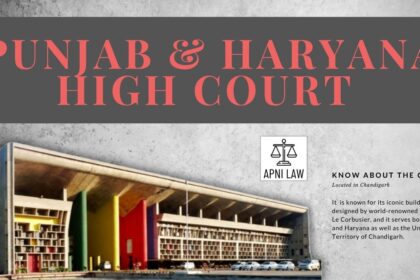Code: Section 41 of The Special Marriage Act (SMA)
41. Power of High Court to make rules regulating procedure
(1) The High Court shall, by notification in the Official Gazette, make rules consistent with the provisions in this Act and the Code of Civil Procedure, 1908 (5 of 1908), as it considers expedient for carrying out the provisions of Chapters V, VI, and VII.
(2) These rules shall, in particular, address:
(a) the impleading of the adulterer as a co-respondent in divorce petitions based on adultery, and the circumstances where the petitioner may be excused from doing so;
(b) awarding damages against any such co-respondent;
(c) allowing intervention in proceedings under Chapters V or VI by persons not already parties to the case;
(d) the format of petitions for nullity of marriage or divorce and the allocation of costs; and
(e) any other matters not adequately covered in this Act but addressed in the Indian Divorce Act, 1869.
Explanation of Section 41
Section 41 empowers the High Court to create rules to help implement the provisions of The Special Marriage Act. These rules must align with both the Act and the Code of Civil Procedure, 1908. The rules will cover specific issues like adultery in divorce petitions, damages against co-respondents, and allowing third-party interventions in marriage-related cases.
Key Provisions:
- Rule Making: The High Court will make rules to regulate specific marriage-related proceedings under Chapters V, VI, and VII.
- Impleading the Adulterer: The rules will explain how and when a petitioner must add an adulterer as a co-respondent in divorce cases, and the situations where they may be excused from this.
- Damages: The High Court will determine under what circumstances damages may be awarded to the petitioner in adultery-based divorce cases.
- Intervention: Third parties may intervene in certain marriage-related proceedings, and the rules will establish how and when this can happen.
- Petitions and Costs: The rules will standardize the format for petitions related to nullity or divorce and how costs will be handled.
Illustration
Example 1: Impleading an Adulterer in Divorce
A petitioner files for divorce based on adultery. Under Section 41, they may need to add the adulterer as a co-respondent. However, if doing so is impractical, the High Court may excuse the petitioner based on specific circumstances outlined in the rules.
Example 2: Awarding Damages
If a petitioner claims adultery, the High Court’s rules will provide guidance on when the court can award damages against the adulterer. These rules protect the rights of those who have suffered due to infidelity.
Common Questions and Answers on Section 41
1. What does Section 41 allow the High Court to do?
- Answer: It allows the High Court to create rules for implementing provisions related to divorce, nullity, and other marriage-related cases under The Special Marriage Act. These rules ensure fairness and clarity in legal procedures.
2. How do these rules affect divorce petitions?
- Answer: The rules regulate procedures for adding co-respondents in adultery cases, awarding damages, and enabling third parties to intervene in proceedings. They ensure consistency and fairness in handling divorce cases.
3. Can the High Court create rules for issues not covered in The Special Marriage Act?
- Answer: Yes, Section 41 enables the High Court to make rules for matters not adequately addressed in the Act but covered in other laws like the Indian Divorce Act.
Conclusion
Section 41 of The Special Marriage Act gives the High Court the authority to create rules regulating marriage-related proceedings. These rules are essential for ensuring fair and smooth legal processes. They address practical issues, such as how to handle adultery cases in divorce proceedings and how third parties may intervene. By making these rules, the High Court helps to clarify procedural matters and protect the rights of all parties involved in marriage-related cases.








